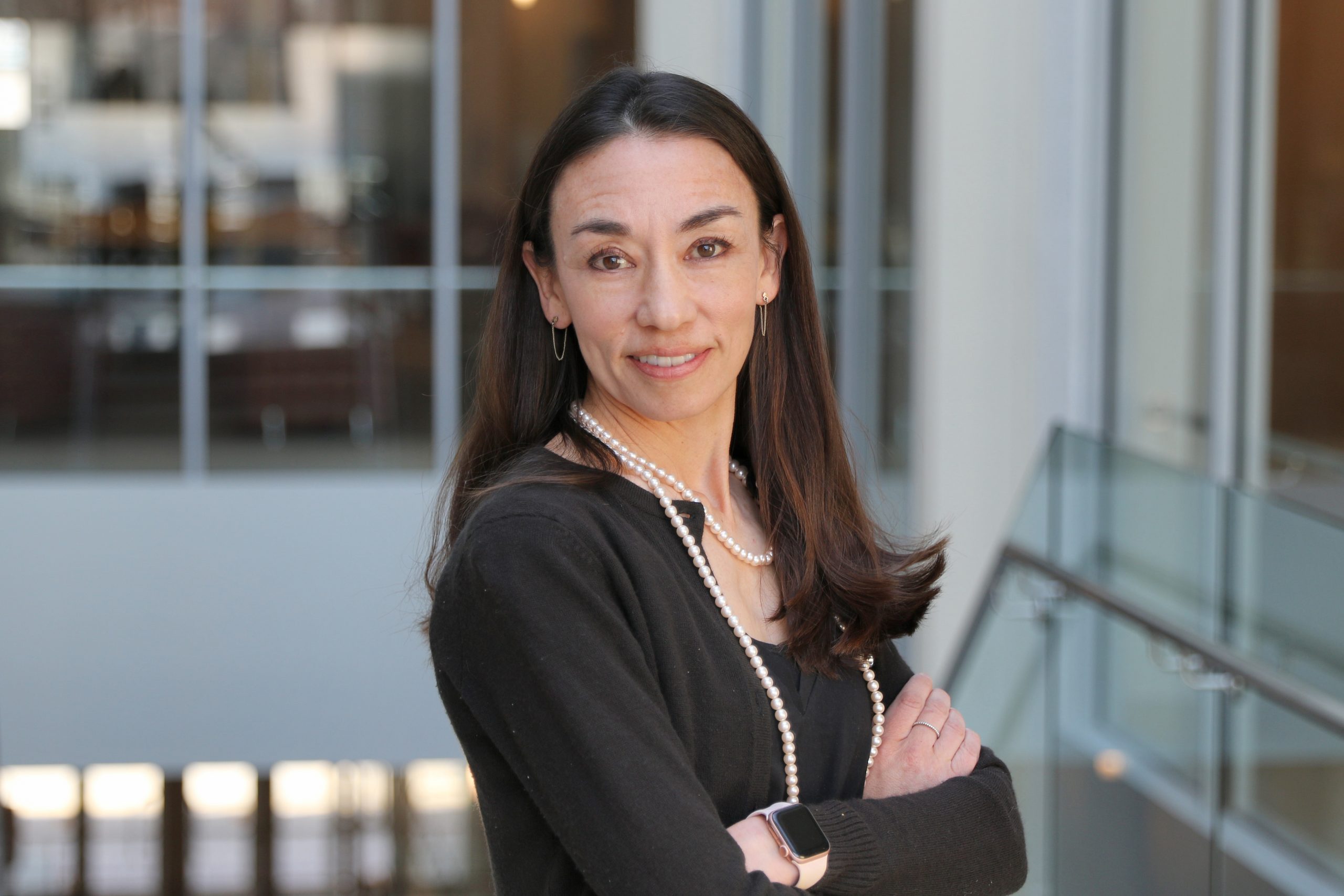DrPH Program Celebrates 100th Dissertation.

DrPH Program Celebrates 100th Dissertation
On March 31, Julia Noguchi successfully defended her dissertation on tiny-home villages for people experiencing homelessness and became the 100th student to complete the DrPH program.
Julia Noguchi’s successful dissertation defense on March 31 was not only a significant milestone in her doctoral education, as the 100th of the Doctor of Public Health program it was also a significant milestone for doctoral education at SPH.
The high-stakes oral presentation is a rite of passage in academia, and the DrPH program requires that students prepare an interdisciplinary dissertation with explicit population-based policy and practice implications. Students are encouraged to support the ongoing work of a health department, community health center, or nonprofit.
“Attending Julia’s defense and looking back on the 99 that came before her I am astounded by not only the breadth but the meaningful substance of what has been produced,” says Patricia Elliott, director of the DrPH Program and a clinical associate professor of community health sciences. “Having now 100 graduates out in the field advancing public health leadership is a point of pride for all of us who have been lucky enough to interact with these DrPH students over the years.”
Developed under the guidance of former Dean Robert Meenan, the DrPH Program welcomed its first class of students in 2004. Many were already experienced public health professionals and enrolled in the practice-oriented degree program to enhance their leadership, management, research, and policy skills to have a greater effect on the health of populations in need.
“I was really interested in community-based work and strengthening community-based programs,” says Noguchi, who, in addition to being a part-time DrPH student, is the director of community engagement and scholarship at the Warren Alpert Medical School of Brown University, “That’s what swayed me towards the DrPH as opposed to a PhD.”
For her dissertation work at the intersection of housing security and health, Noguchi partnered with House of Hope Community Development Corporation, a Rhode Island nonprofit planning to start a tiny-home village for people experiencing homelessness. They call the project Emergency COVID Housing Opportunities, or ECHO Village.
“[In a traditional shelter] there are a lot of restrictions. Sometimes couples aren’t allowed, sometimes pets aren’t allowed, you have to leave during the day,” says Noguchi. “But in a tiny-home village, you have your own private space where you can lock your belongings and you can come and go as you please, so there’s really a lot more independence.”
This type of short-term housing allows people to focus their time and energy on other things, says Noguchi, such as reconnecting with family, finding permanent housing, getting a job, or addressing health issues. Her dissertation includes practical recommendations for implementing health service delivery in ECHO Village. She hopes House of Hope CDC can use her dissertation work to apply for grants and garner the support needed to make the hypothetical village a reality.
“When they return to the field, [graduates] assume leadership positions in public health practice and education and build a legacy implementing the core mission of BUSPH to ignite and sustain positive change,” says Eugene Declercq, professor of community health sciences and the first director of the DrPH Program. Honoring the DrPH Program’s legacy of public health leadership, Noguchi continues to support the ECHO Village project as board vice president for House of Hope CDC.
Other program alumni have used their dissertation work as a springboard for their careers. As a student, Ann Peralta (SPH ’22) won the Eugene Declercq Award for Excellence in a Public Health Practice Dissertation for her work developing and testing a decision aid for pregnant people on routine labor induction. Peralta, who now works at the Massachusetts Department of Public Health, founded a non-profit called Partner to Decide to continue the work she started in her dissertation to increase equitable access to shared decision-making in perinatal care.
Shaffi Fazaludeen Koya (SPH ’22) also won the Eugene Declercq Award. His dissertation titled “Antibiotic consumption and its determinants in India” evoked an official response from the Indian government when it was published in The Lancet Southeast Asia and subsequently covered by the press. Since graduating, he has continued to strengthen discussions around appropriate antibiotic use through his research and consulting work for various clients, including the World Health Organization and several state governments.
“Professors Declercq and Elliott and my thesis committee members showed tremendous faith in my conviction that I was going to complete my DrPH within three years,” says Koya. “Their support was invaluable in my successful journey here at BUSPH.”
